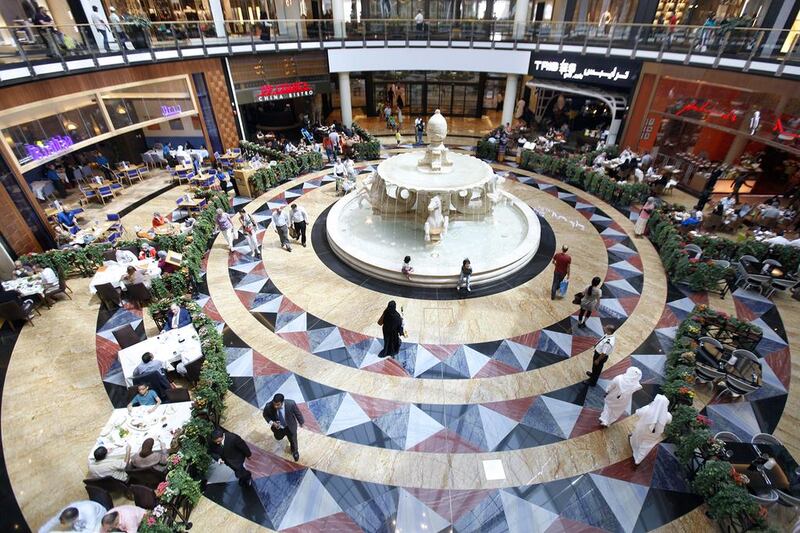The departure of the long-serving Majid Al Futtaim chief executive Iyad Malas will not affect the group’s expansion plans, according to analysts.
The owner and operator of Mall of the Emirates in Dubai said in its earnings statement last month that it planned to double its business in the next five years by building more malls.
It is eyeing expansion in the Middle East and North Africa, with a strong focus on Saudi Arabia and Egypt.
Mr Malas, who served as chief executive for six years, has been replaced by Alain Bejjani, the former chief corporate development and brand officer.
“We still view MAF management and governance as strong. It’s one of the strongest that we rate in the region in our view,” said Franck Delage, an analyst with Standard & Poor’s. “This is because the senior management of MAF has shown strong expertise in real estate and also in retail business with successful track records, very long experience and financial reporting that has always been very transparent.
“There has been consistency in the group strategy, organisation capability and market conditions, with a prudent approach regarding developments and acquisitions.”
Revenue grew 11 per cent last year to Dh25 billion and earnings before interest, taxes, depreciation and amortisation (Ebitda) from recurring operations increased 10 per cent to reach Dh3.6bn.
The firm had net debt of Dh8bn at the end of last year.
“Some of the key ratings drivers [for MAF] continue to be the same, which is resilient performance, strong interest cover and improving maturity profile of their debt,” said Bashar Al Natoor, a credit analyst at Fitch Ratings.
“We note that MAF’s development pipeline remains large and it could be around Dh22bn over the coming five years.”
MAF, which is rated BBB by S&P and Fitch, is expected to weather an expected downturn in the property and retail markets, unless the slump is more pronounced than forecast.
“If the slowdown of the property market and retail consumption was more than what we anticipate and if that would result in weakening in MAF credit metrics, particularly in terms of leverage and interest coverage, then we may revise the rating,” said Mr Delage.
Revenue from property rose by 8 per cent to Dh4bn and Ebitda for that segment increased by 7 per cent to Dh2.4bn last year.
The retail division’s revenue rose by 11 per cent to Dh21bn and Ebitda grew by 16 per cent to Dh1.1bn.
MAF currently operates 13 shopping malls across the UAE, Egypt, Oman, Bahrain and Lebanon, and four new malls are planned to open by 2018.
MAF also owns 11 hotels adjacent to shopping malls and is building another hotel in Dubai, which is set to open next year.
The firm, which has the exclusive franchise for Carrefour supermarkets in 38 countries, plans to open eight new outlets this year.
MAF is benefiting from the growth of the retail industry in the UAE, which is set to expand by 6 per cent over the next five years on average, according to the research firm Euromonitor International.
The retail industry grew by 7.5 per cent in the UAE last year to $33bn, which is higher than the Middle East’s average 4 per cent annual growth rate.
Grocery retailers are expected to grow by 6.5 per cent on average over the next five years and the number of stores will grow 3 per cent in the next five years on average in the UAE, according to Euromonitor.
“For those who are entering the market, it means they will be making more money, which basically means that on average there will be bigger and larger formats than existing ones,” said Nikola Kosutic, a researcher with Euromonitor.
Also the high level of disposable income for the young and expanding UAE population is boosting retail sales. According to Euromonitor, annual disposable income last year was $12,360 per capita versus a global average of $6,842.
dalsaadi@thenational.ae
Follow The National's Business section on Twitter





